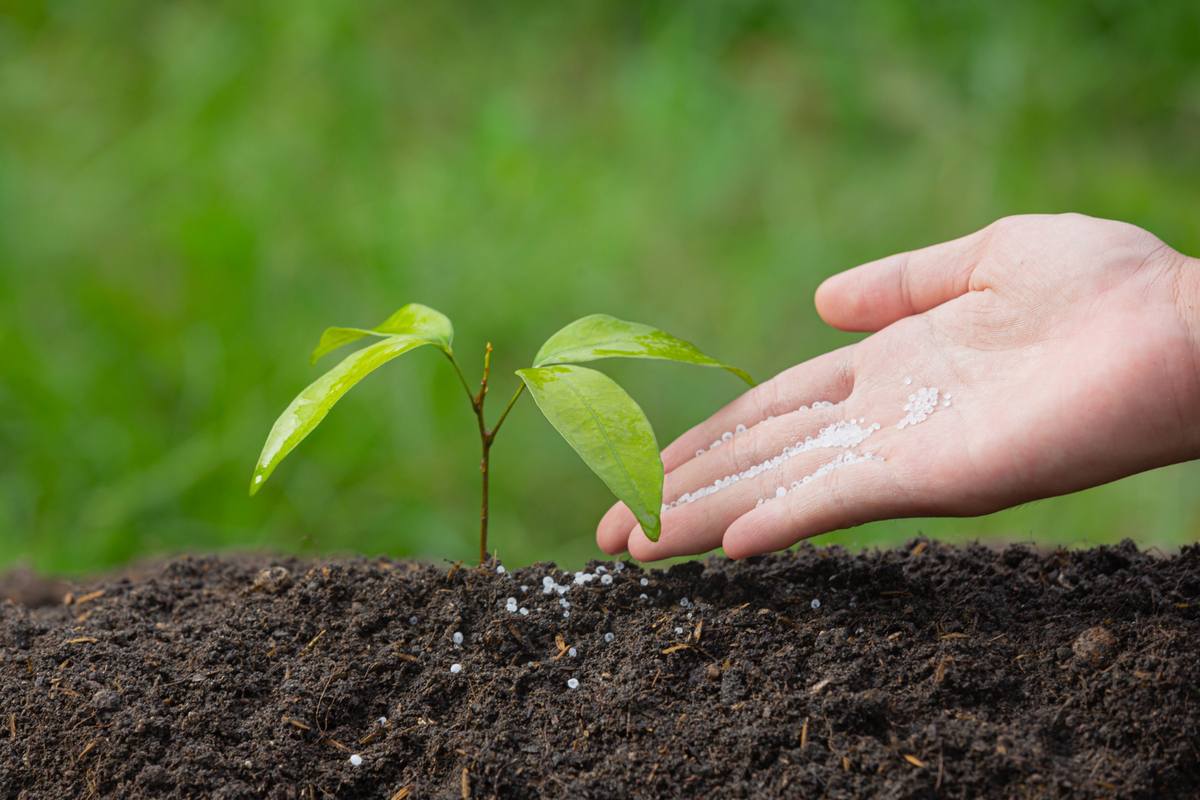In farming and gardening, plant growth, health, and yield are greatly influenced by the nutrients they receive. This is where the role of manure and fertilizers becomes crucial. Both are used in fields to improve soil fertility, but they vary in terms of composition and impact. To comprehend the distinction, it is important to have a clear understanding of what manure and fertilizers are, as well as the various types that are employed in fields.
Table of Contents
What is Manure?
Manure, which is derived from the decomposition of animal waste, is an organic material that comes from livestock like cows, horses, poultry, or pigs. Packed with nutrients such as nitrogen, phosphorus, and potassium, manure serves as a valuable natural fertilizer that boosts soil fertility and stimulates plant growth. It plays a vital role in sustainable agriculture by recycling nutrients and organic matter back into the soil. Farmers employ various methods like composting or directly applying manure to fields, ensuring that crops receive essential nutrients while enhancing soil structure and water retention.
Types of Manure

Manure, a valuable organic fertilizer, is derived from animal waste and can significantly enhance soil fertility. Different types of manure offer varying nutrient compositions, making them suitable for different crops and soil conditions. Some common types of manure are described below.
Cow Manure: Rich in nitrogen and organic matter, cow manure is a well-balanced fertilizer that improves soil structure and water retention. It’s commonly used for vegetables and garden plants.
Chicken Manure: High in nitrogen, phosphorus, and potassium, chicken manure is a potent fertilizer. However, it can be “hot” and should be composted before application to prevent burning plants.
Sheep and Goat Manure: These manures are similar to cow manure but may have a higher nutrient concentration. Composting is recommended to improve nutrient availability and reduce weed seeds.
Green Manure: While not animal-derived, green manure involves growing cover crops like legumes and grasses and incorporating them into the soil. It enhances soil fertility, structure, and organic matter content.
Compost: Compost is a mixture of organic materials, including kitchen scraps, yard waste, and manure. It provides a well-balanced blend of nutrients and improves soil structure.
The choice of manure depends on the specific nutrient needs of crops, the soil condition, and the availability of different types of manure.
What are Fertilizers?
Fertilizers are substances that are applied to soil or plants to provide essential nutrients that may be lacking for optimal growth and development. These nutrients, such as nitrogen, phosphorus, and potassium, play important roles in various biochemical processes within plants. Fertilizers come in different forms, including granular, liquid, and organic varieties. They are used strategically in agriculture, gardening, and horticulture to improve soil fertility and supplement the nutrient content for healthy plant growth. By carefully applying fertilizers, nutrient deficiencies can be addressed, higher yields can be promoted, and sustainable and efficient agricultural practices can be achieved. It is crucial to have a proper understanding of soil composition and plant nutrient requirements to effectively use fertilizers and ensure the health and productivity of crops and plants.
Type of Fertilizers

Fertilizers can be classified into various types based on their nutrient composition, source, and form. Here’s an overview of the main types of fertilizers.
Nitrogen Fertilizers: Examples include urea, ammonium nitrate, ammonium sulfate, and calcium ammonium nitrate. These fertilizers provide essential nitrogen for leaf and stem development, promoting overall plant growth.
Phosphorus Fertilizers: Common phosphorus fertilizers include super-phosphate, triple super-phosphate, and rock phosphate. Phosphorus is crucial for root development, flowering, and fruiting.
Potassium Fertilizers: Potassium fertilizers, such as potassium chloride and potassium sulfate, provide this essential nutrient that supports processes like enzyme activation and water regulation in plants.
Complete or Compound Fertilizers: These contain a balanced mix of nitrogen, phosphorus, and potassium. Examples include 10-10-10 or 20-20-20 formulations, providing a comprehensive nutrient package.
Organic Fertilizers: Derived from natural sources, organic fertilizers include compost, manure, bone meal, and neem cake. They contribute organic matter to the soil and release nutrients gradually.
Bio-fertilizers: Bio-fertilizers contain beneficial microorganisms like nitrogen-fixing bacteria or mycorrhizal fungi, fostering symbiotic relationships with plants and enhancing nutrient availability.
Understanding the specific nutrient needs of plants and the soil composition is crucial for selecting the appropriate type of fertilizer. Proper fertilizer application is key to promoting healthy plant growth and maximizing crop yields.
Difference Between Manure and Fertilizers

Manure and fertilizers are both used to enhance soil fertility and promote plant growth, but they differ in their composition, sources, and modes of application. Here are the key differences between manure and fertilizers:
| S. NO. | MANURE | FERTILIZERS |
| 1. | Manure is organic matter derived from the decomposition of animal feces along with bedding materials (straw, hay) and other organic substances. It contains a mix of nutrients, including nitrogen, phosphorus, and potassium, as well as organic matter that improves soil structure. | Fertilizers are synthetic or natural substances containing specific concentrations of essential nutrients. They can be formulated to provide varying ratios of nitrogen, phosphorus, potassium, and other micronutrients required for plant growth. |
| 2. | Nutrients in manure are released gradually as the organic matter decomposes. This slow-release nature contributes to long-term soil fertility and helps improve soil structure. | Fertilizers typically release nutrients more quickly, providing an immediate source of nutrition for plants. However, some slow-release fertilizers are designed to provide nutrients over an extended period. |
| 3. | Derived from animal waste, manure is a byproduct of livestock farming, including cows, poultry, pigs, and horses. | Fertilizers can be sourced from natural minerals (e.g., phosphate rock), chemically synthesized (e.g., ammonium nitrate), or derived from organic materials (e.g., bone meal). |
| 4. | Rich in organic matter, manure improves soil structure, water retention, and microbial activity. | While some fertilizers may contain organic components, they generally lack the organic matter found in manure. |
| 5. | Enhances soil microbial activity due to its organic content, contributing to a healthier soil ecosystem. | Do not necessarily provide the same boost to microbial populations as manure. |
| 6. | When improperly managed, manure runoff can contribute to water pollution. However, when used judiciously, manure is considered more environmentally friendly than certain fertilizers. | Excessive use or improper application of synthetic fertilizers can lead to nutrient runoff, impacting water quality and contributing to environmental issues. |







